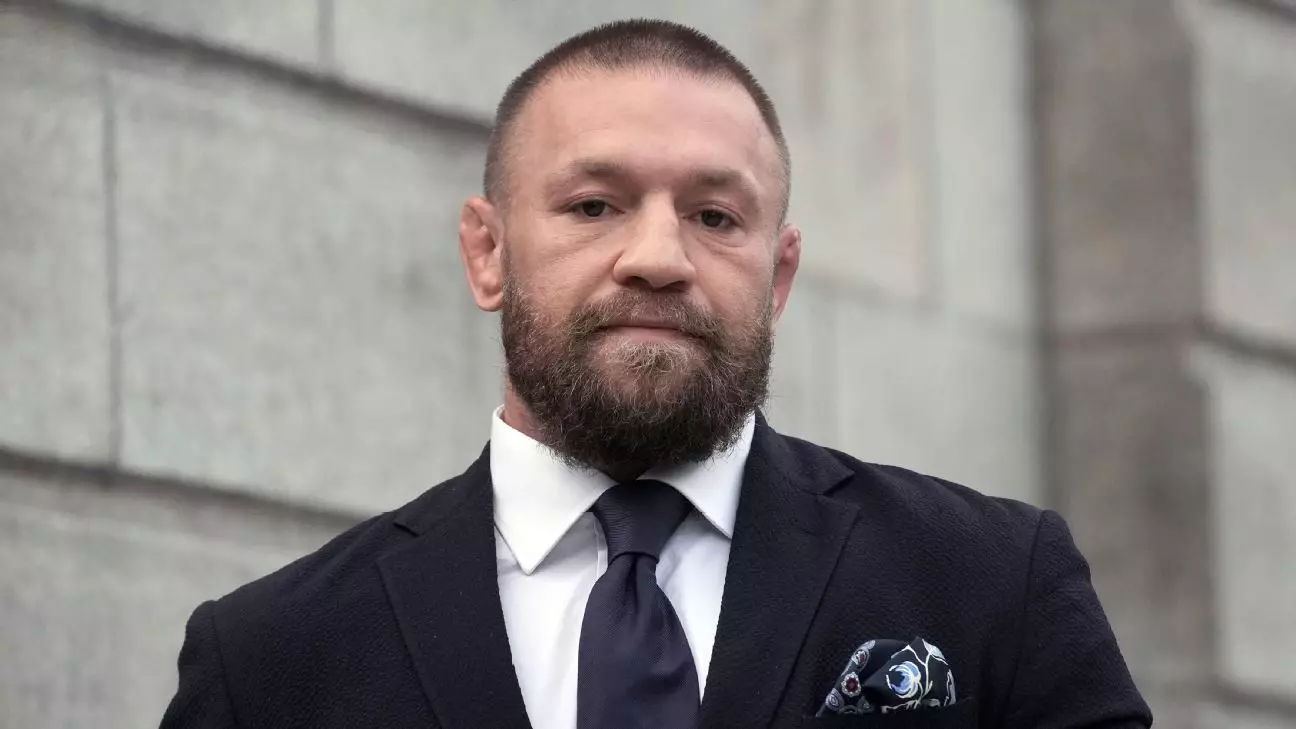Conor McGregor, once celebrated as one of the most charismatic and successful fighters in the UFC, now finds himself embroiled in a serious legal debacle that casts a long shadow over his career and reputation. The recent rejection of his appeal in a civil sexual assault case marks a critical juncture, emphasizing that even the most revered sports icons are not immune to the consequences of allegations and legal scrutiny. Rather than a simple legal setback, this case exposes profound issues about accountability, media influence, and the societal expectations placed upon public figures.
McGregor’s initial liability, which was affirmed by a jury in Ireland, reflects a broader shift in how accusations—regardless of criminal prosecution—are becoming increasingly difficult for high-profile individuals to dismiss. His attempt to overturn the verdict through appeal underscores his desire to maintain a resilient public image, but the court’s decisive rejection indicates that legal avenues are not easily manipulated by fame alone. The case underscores the importance of personal responsibility, especially when allegations involve serious issues like assault and consent.
The Power of Evidence and the Challenges of Defense Strategies
Throughout the legal process, McGregor’s team introduced multiple arguments, including new testimony from a witness who claimed to have observed a physical altercation involving the victim. However, the withdrawal of this testimony reveals a critical flaw—either it lacked credibility or failed to substantiate McGregor’s innocence. This decision signals a recognition that, in complex sexual assault claims, emotional and testimonial evidence carries immense weight, often overshadowing any tactical legal maneuvers.
The victim’s account remains central to this case: she described an assault where McGregor allegedly forced her onto a bed, choked her, and created a life-threatening situation. Her testimony, validated by the court’s ruling, emphasizes the importance of listening to victims and understanding that sexual violence is not always black and white but involves nuanced personal accounts that must be taken seriously. McGregor’s acknowledgment of consensual sex, contrasted with his denials of forcefulness, illustrates the delicate line between miscommunication and assault—yet, ultimately, the court found enough to hold him liable.
The Intersection of Fame, Personal Conduct, and Society’s Expectations
Beyond the courtroom, McGregor’s case sparks a discussion about the responsibilities that come with fame. Athletes like McGregor live under constant scrutiny, yet responding to allegations with denial or legal appeals can often be perceived as attempts to shirk accountability. For someone with a history of controversial behaviors outside the octagon, this latest incident reinforces a pattern of risky personal conduct that fans and critics alike view with skepticism.
Moreover, his lengthy absence from UFC competitions—the result of a severe leg injury—has somewhat diminished his athletic presence, but the controversy over his personal conduct keeps him in the public eye. His expressed interest in returning to the octagon and participating in high-profile events, such as a potential UFC appearance at the White House, are now tainted by the recent legal developments. It’s a stark reminder that in the age of social media and instant information, reputation management requires genuine accountability rather than superficial deflections.
The case against McGregor is more than a legal matter; it reflects a societal shift where personal integrity and accountability weigh heavily on public figures. The court’s decision underscores that no amount of fame can shield those accused of serious misconduct from justice or moral scrutiny. For McGregor, the road ahead is uncertain—not only regarding his athletic future but also about how he chooses to confront his past actions and their repercussions.

